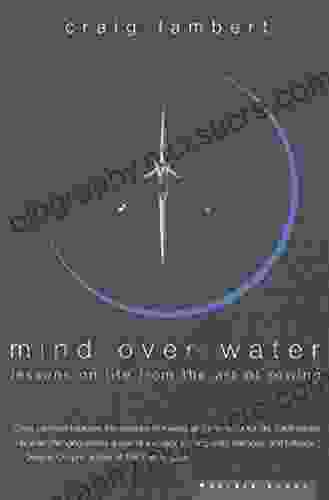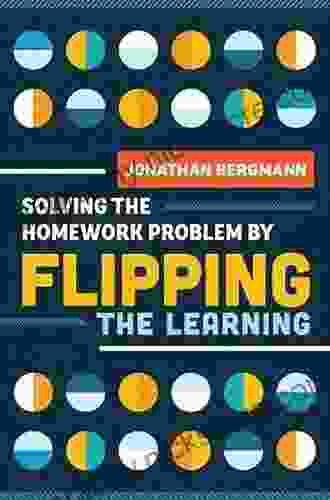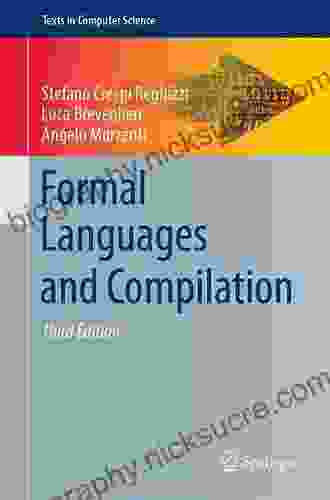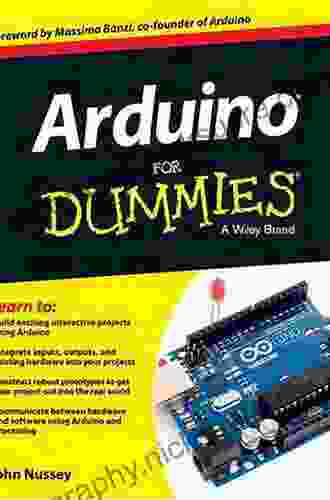Formal Languages and Compilation: Unveiling the Theoretical Underpinnings of Computer Science

Formal languages and compilation play a pivotal role in the realm of computer science. They provide a robust framework for representing, analyzing, and transforming computer programs, making them essential for software development, programming language design, and compiler construction. This article aims to provide a comprehensive exploration of these foundational concepts, highlighting their significance and applications in the field of computing.
Formal languages are a well-defined set of strings generated according to a specific set of rules. These rules, known as formal grammar, specify the syntax and structure of the language. Formal languages serve as a powerful tool for describing and analyzing the behavior of computer programs, enabling computer scientists to reason about their correctness and properties.
A formal grammar consists of:
5 out of 5
| Language | : | English |
| File size | : | 85799 KB |
| Text-to-Speech | : | Enabled |
| Screen Reader | : | Supported |
| Enhanced typesetting | : | Enabled |
| Print length | : | 873 pages |
- Alphabet: A finite set of symbols that make up the language.
- Production Rules: A set of rules that define how to combine symbols to form valid strings.
- Start Symbol: The symbol from which all strings in the language can be derived.
Using these components, a grammar can generate a language by applying the production rules repeatedly, starting from the start symbol.
Formal languages can be classified into different types based on their generative power. Some common types include:
- Regular Languages: Can be generated by regular expressions.
- Context-Free Languages: Can be generated by context-free grammars.
- Context-Sensitive Languages: Can be generated by context-sensitive grammars.
- Unrestricted Languages: Can be generated by unrestricted grammars.
Formal languages find applications in various areas, including:
- Lexical Analysis: Identifying and categorizing tokens in a program.
- Syntax Analysis: Parsing programs to check their syntactic correctness.
- Code Generation: Translating high-level programs into low-level instructions.
- Natural Language Processing: Modeling and analyzing human language.
Compilation is the process of translating a high-level programming language into a low-level language, typically machine code. This translation enables computer systems to execute programs written in a human-readable format, such as Python or Java. The compilation process involves several key stages:
The first stage identifies and classifies tokens in the program, such as keywords, identifiers, and operators.
The parser checks the program's syntax, ensuring that it conforms to the grammar of the language.
This stage performs type checking and other semantic validations to ensure the program's validity.
The compiler generates machine code instructions that the computer can execute directly.
Optional optimizations can be applied to improve the efficiency of the generated code.
There are various types of compilers, each tailored for specific applications:
- Single-Pass Compilers: Perform all stages of compilation in one pass.
- Multi-Pass Compilers: Perform multiple passes, with each pass dedicated to a specific task.
- Just-in-Time (JIT) Compilers: Compile code at runtime, offering performance improvements.
Compilation is crucial for several reasons:
- Portability: Allows programs to run on different hardware platforms.
- Efficiency: Generated machine code typically runs faster than interpreted code.
- Security: Compilation can help detect errors and vulnerabilities in programs.
Formal languages and compilation have extensive applications in computer science, including:
- Software Development: Programmers use formal languages to specify software requirements and design.
- Compiler Construction: Compilers themselves are built using formal languages and compilation techniques.
- Artificial Intelligence: Formal languages help describe and analyze the behavior of AI systems.
- Networking: Formal languages are used to specify network protocols and message formats.
- Database Systems: Formal languages are used to query and manipulate data in databases.
Formal languages and compilation form the theoretical foundation of computer science, enabling the representation, analysis, and transformation of computer programs. Formal languages provide a precise framework for specifying and analyzing program syntax and structure, while compilation translates high-level programs into low-level instructions that can be executed by computer systems. These concepts play a vital role in various areas of computer science, including software development, compiler construction, and a wide range of applications across different industries.
5 out of 5
| Language | : | English |
| File size | : | 85799 KB |
| Text-to-Speech | : | Enabled |
| Screen Reader | : | Supported |
| Enhanced typesetting | : | Enabled |
| Print length | : | 873 pages |
Do you want to contribute by writing guest posts on this blog?
Please contact us and send us a resume of previous articles that you have written.
 Fiction
Fiction Non Fiction
Non Fiction Romance
Romance Mystery
Mystery Thriller
Thriller SciFi
SciFi Fantasy
Fantasy Horror
Horror Biography
Biography Selfhelp
Selfhelp Business
Business History
History Classics
Classics Poetry
Poetry Childrens
Childrens Young Adult
Young Adult Educational
Educational Cooking
Cooking Travel
Travel Lifestyle
Lifestyle Spirituality
Spirituality Health
Health Fitness
Fitness Technology
Technology Science
Science Arts
Arts Crafts
Crafts DIY
DIY Gardening
Gardening Petcare
Petcare Chris Bennett
Chris Bennett Kindle Edition
Kindle Edition Beau Miles
Beau Miles Candice Davie
Candice Davie Donald Frias
Donald Frias Mark Twain
Mark Twain Kyle Butler
Kyle Butler Editors Of Southern Living Magazine
Editors Of Southern Living Magazine C R Hallpike
C R Hallpike St Louis Post Dispatch
St Louis Post Dispatch Ralph Galeano
Ralph Galeano Beau Bradbury
Beau Bradbury Emma Walker
Emma Walker Maha Alkurdi
Maha Alkurdi Ben Collins
Ben Collins James Randi
James Randi Ellen Notbohm
Ellen Notbohm Cara Koscinski
Cara Koscinski Jennifer Traig
Jennifer Traig Linda Carroll
Linda Carroll Gay Robins
Gay Robins Ryan Higa
Ryan Higa Achille Rubini
Achille Rubini Kathleen Masters
Kathleen Masters Joseph Alton M D
Joseph Alton M D Barbara Kennard
Barbara Kennard Diane Yancey
Diane Yancey Richard Scott
Richard Scott Marc Loy
Marc Loy Barbara Illowsk
Barbara Illowsk Sean Mcindoe
Sean Mcindoe Margaret Owen
Margaret Owen Nina Manning
Nina Manning Martin Dugard
Martin Dugard Jennifer Pharr Davis
Jennifer Pharr Davis Lock Gareth
Lock Gareth William Byers
William Byers Stephen J Bavolek
Stephen J Bavolek W Hamilton Gibson
W Hamilton Gibson Karen Bush
Karen Bush Nichole Carpenter
Nichole Carpenter Lynn Rosen
Lynn Rosen Cynthia Levinson
Cynthia Levinson Chase Hill
Chase Hill Joshua Hammer
Joshua Hammer Hollis Lance Liebman
Hollis Lance Liebman R L Medina
R L Medina Shayla Black
Shayla Black Jaymin Eve
Jaymin Eve Nicholas Sparks
Nicholas Sparks Cheryl Erwin
Cheryl Erwin Wayne B Chandler
Wayne B Chandler Barry Rabkin
Barry Rabkin Mina Lebitz
Mina Lebitz Mykel Hawke
Mykel Hawke Dustin Salomon
Dustin Salomon Benita Bensch
Benita Bensch Scott Mactavish
Scott Mactavish Michael Palin
Michael Palin Jeff Belanger
Jeff Belanger Suzanne Wylde
Suzanne Wylde Rowan Jacobsen
Rowan Jacobsen David Thomas
David Thomas David Abram
David Abram Jane Butel
Jane Butel Barry J Kemp
Barry J Kemp Jane Hardwicke Collings
Jane Hardwicke Collings Joanna Hunt
Joanna Hunt Leia Stone
Leia Stone Fred Mitchell
Fred Mitchell Noah Brown
Noah Brown Nicole Martin
Nicole Martin Charlotte Booth
Charlotte Booth Titus M Kennedy
Titus M Kennedy Scott Malthouse
Scott Malthouse Arny Alberts
Arny Alberts Betty Stone
Betty Stone Rob Hutchings
Rob Hutchings Barbara Russell
Barbara Russell David Taylor
David Taylor Bashir Hosseini Jafari
Bashir Hosseini Jafari Jamie Margolin
Jamie Margolin Barbara Ann Kipfer
Barbara Ann Kipfer Daniel T Willingham
Daniel T Willingham Christopher L Heuertz
Christopher L Heuertz Catherine J Allen
Catherine J Allen Mike Commito
Mike Commito Gary Lincoff
Gary Lincoff David Jamieson Bolder
David Jamieson Bolder Carlo Collodi
Carlo Collodi Gerald Beaudry
Gerald Beaudry Ron Avery
Ron Avery James C Radcliffe
James C Radcliffe Suzanne Leonhard
Suzanne Leonhard Paul Van Lierop
Paul Van Lierop Mackenzi Lee
Mackenzi Lee Richard Harris
Richard Harris Dave Karczynski
Dave Karczynski Jonathan Kellerman
Jonathan Kellerman Becca Anderson
Becca Anderson Beth Miller
Beth Miller Dustin Hansen
Dustin Hansen Jeff Alt
Jeff Alt Barry Johnston
Barry Johnston Bryan Peterson
Bryan Peterson Mark Kurlansky
Mark Kurlansky Chadd Vanzanten
Chadd Vanzanten Michelle Rigler
Michelle Rigler Dr Michael P Masters
Dr Michael P Masters Brian Gilbert
Brian Gilbert Mike Loades
Mike Loades Marco Grandis
Marco Grandis Jeffrey Jensen Arnett
Jeffrey Jensen Arnett Muhammad Zulqarnain
Muhammad Zulqarnain Pat Shipman
Pat Shipman Reelav Patel
Reelav Patel Buddy Levy
Buddy Levy David Starbuck Smith
David Starbuck Smith Joseph Schmuller
Joseph Schmuller Smart Reads
Smart Reads Thomas Lumley
Thomas Lumley Ellen Lewin
Ellen Lewin Macauley Lord
Macauley Lord Cait Stevenson
Cait Stevenson Linnea Dunne
Linnea Dunne Robert Ardrey
Robert Ardrey Rachel Dash
Rachel Dash Violet Moller
Violet Moller Nadine Hays Pisani
Nadine Hays Pisani Massimo Cossu Nicola Pirina
Massimo Cossu Nicola Pirina Monica Hesse
Monica Hesse Deanna Roy
Deanna Roy Jade Barrett
Jade Barrett Christopher Taylor Ma Lmft
Christopher Taylor Ma Lmft Sergei Urban
Sergei Urban Rachelle Zukerman
Rachelle Zukerman Barry Glassner
Barry Glassner Sara Shepard
Sara Shepard Blair Braverman
Blair Braverman Frederick Douglass Opie
Frederick Douglass Opie Marshall Jon Fisher
Marshall Jon Fisher J C Cervantes
J C Cervantes Yang Kuang
Yang Kuang Ken Xiao
Ken Xiao Jenna Helland
Jenna Helland Mitch Prinstein
Mitch Prinstein Robin Knox Johnston
Robin Knox Johnston Samantha Fitts
Samantha Fitts Leonard M Adkins
Leonard M Adkins Master Gamer
Master Gamer Sam Kean
Sam Kean Hill Gates
Hill Gates Larry Dane Brimner
Larry Dane Brimner Daniel S Lobel Phd
Daniel S Lobel Phd Mike Allison
Mike Allison Basudeb Bhatta
Basudeb Bhatta Shmuel Peerless
Shmuel Peerless Grey Owl
Grey Owl Pavla Kesslerova
Pavla Kesslerova Reprint Edition Kindle Edition
Reprint Edition Kindle Edition Paul Doiron
Paul Doiron James Koeper
James Koeper Beebe Bahrami
Beebe Bahrami Edith Grossman
Edith Grossman Mike Massie
Mike Massie Bridget Flynn Walker Phd
Bridget Flynn Walker Phd John C Norcross
John C Norcross Alastair Hannay
Alastair Hannay Wanda Priday
Wanda Priday Basu Shanker
Basu Shanker Jim Wharton
Jim Wharton Ernie Morton
Ernie Morton William H Frey
William H Frey Toby A H Wilkinson
Toby A H Wilkinson Gordon Witteveen
Gordon Witteveen Rhonda Belle
Rhonda Belle Mary A Fristad
Mary A Fristad Dan R Lynch
Dan R Lynch Barbara Mertz
Barbara Mertz T H White
T H White Stefan Ecks
Stefan Ecks Ryan T White
Ryan T White Victor Seow
Victor Seow Kit Yates
Kit Yates Jude Currivan
Jude Currivan Mark H Newman
Mark H Newman Mark Young
Mark Young J Bruce Brackenridge
J Bruce Brackenridge Jayanti Tambe
Jayanti Tambe Lynn Mann
Lynn Mann Joanne Glenn
Joanne Glenn Tim Marshall
Tim Marshall Siddhartha Rao
Siddhartha Rao Boy Scouts Of America
Boy Scouts Of America Martin Sternstein
Martin Sternstein Steven Hawthorne
Steven Hawthorne Richard Meadows
Richard Meadows David Beaupre
David Beaupre Shannon Reilly
Shannon Reilly Jen Houcek
Jen Houcek Hunbatz Men
Hunbatz Men Denton Salle
Denton Salle Nancy E Willard
Nancy E Willard Erica B Marcus
Erica B Marcus Jonathan Bergmann
Jonathan Bergmann John Whitman
John Whitman Peter K Tyson
Peter K Tyson Ryan A Pedigo
Ryan A Pedigo Hongyu Guo
Hongyu Guo Sam Nadler
Sam Nadler Colleen Alexander Roberts
Colleen Alexander Roberts Michael Wood
Michael Wood Nicholas Wolterstorff
Nicholas Wolterstorff Stephen K Sanderson
Stephen K Sanderson Autumn Carpenter
Autumn Carpenter Dr Craig Malkin
Dr Craig Malkin Simon Spurrier
Simon Spurrier Janna Levin
Janna Levin Jean Smith
Jean Smith Ben Sedley
Ben Sedley Eddie Merrins
Eddie Merrins Daniel J Barrett
Daniel J Barrett Breanna Hayse
Breanna Hayse Leon Mccarron
Leon Mccarron Helen Kara
Helen Kara Bonnie Tsui
Bonnie Tsui Tara Brach
Tara Brach Tim Ingold
Tim Ingold Mark Rashid
Mark Rashid Elizabeth George Speare
Elizabeth George Speare David Cockburn
David Cockburn Nick Bollettieri
Nick Bollettieri Erica Schultz
Erica Schultz Geert Hofstede
Geert Hofstede Chris Cage
Chris Cage James Duthie
James Duthie Justin Sirois
Justin Sirois Lawrence Baldassaro
Lawrence Baldassaro Laura Pavlov
Laura Pavlov John Aldridge
John Aldridge Peter Martin
Peter Martin John Lister Kaye
John Lister Kaye Ben Goldacre
Ben Goldacre Richard H Immerman
Richard H Immerman Clifford Herriot
Clifford Herriot Yuki Mano
Yuki Mano Jack Andraka
Jack Andraka Eugene V Resnick
Eugene V Resnick Barbara Rogoff
Barbara Rogoff Bb
Bb Chris Eberhart
Chris Eberhart Bernard Marr
Bernard Marr Barbara Bassot
Barbara Bassot Howard Zinn
Howard Zinn P J Agness
P J Agness Nick Neely
Nick Neely Constanze Niedermaier
Constanze Niedermaier John Henry Phillips
John Henry Phillips Bruce Pascoe
Bruce Pascoe John D Barrow
John D Barrow Bill Mckibben
Bill Mckibben Robin Mcmillan
Robin Mcmillan Mike Swedenberg
Mike Swedenberg Cary J Griffith
Cary J Griffith Susan Nance
Susan Nance Ping Li
Ping Li Scott Westerfeld
Scott Westerfeld Sam Cowen
Sam Cowen Eric Franklin
Eric Franklin Glenna Mageau
Glenna Mageau John G Robertson
John G Robertson Steve Biddulph
Steve Biddulph Jessica Smartt
Jessica Smartt Melissa Gomes
Melissa Gomes Charles Buist
Charles Buist Brian Switek
Brian Switek Visual Arts
Visual Arts Steven Bell
Steven Bell Robin Nixon
Robin Nixon Edward Lee
Edward Lee Chuck Missler
Chuck Missler Julian I Graubart
Julian I Graubart Robert A Baruch Bush
Robert A Baruch Bush Scarlett Thomas
Scarlett Thomas Jay Abramson
Jay Abramson Vincent Bossley
Vincent Bossley Joseph Epes Brown
Joseph Epes Brown Barzin Pakandam
Barzin Pakandam Debra Kilby
Debra Kilby Elizabeth Lockwood
Elizabeth Lockwood Dr Faith G Harper
Dr Faith G Harper James M Collins
James M Collins Lewis Thomas
Lewis Thomas Matt Taddy
Matt Taddy John Sandford
John Sandford Steve Burrows
Steve Burrows John Quick
John Quick Gordon H Chang
Gordon H Chang Susan Dennard
Susan Dennard Jim Fay
Jim Fay Craig Lambert
Craig Lambert S E Hinton
S E Hinton David Aretha
David Aretha Kara Goucher
Kara Goucher Baruch Englard
Baruch Englard Barbara Neiman
Barbara Neiman Graham Farmelo
Graham Farmelo James Duggan
James Duggan Kenneth Wilgus Phd
Kenneth Wilgus Phd Casey Watson
Casey Watson Jack Newman
Jack Newman Leslie Stager
Leslie Stager Erik J Brown
Erik J Brown Rob Rains
Rob Rains John Kimantas
John Kimantas Cindy Post Senning
Cindy Post Senning F William Lawvere
F William Lawvere Bill Milliken
Bill Milliken Proper Education Group
Proper Education Group Timothy Pakron
Timothy Pakron Daniel M Koretz
Daniel M Koretz Chiara Sparks
Chiara Sparks David A Bogart
David A Bogart J Michael Veron
J Michael Veron Charlie Shamp
Charlie Shamp Diane Cardwell
Diane Cardwell Elliott Vandruff
Elliott Vandruff Melissa Haag
Melissa Haag John H Mcwhorter
John H Mcwhorter Craig Martin
Craig Martin Craig Romano
Craig Romano Ben Povlow
Ben Povlow Charles River Editors
Charles River Editors Rebecca Rupp
Rebecca Rupp Thomas French
Thomas French Nick Townsend
Nick Townsend Roy Porter
Roy Porter John Garrity
John Garrity Scott Reed
Scott Reed Fabien Clavel
Fabien Clavel Tom Miller
Tom Miller Luke Gilkerson
Luke Gilkerson Molly E Lee
Molly E Lee Trish Kuffner
Trish Kuffner Babu The Panda
Babu The Panda Meghan L Marsac
Meghan L Marsac Vanessa Ogden Moss
Vanessa Ogden Moss Jessica F Shumway
Jessica F Shumway Valerie Pollmann R
Valerie Pollmann R George Macdonald
George Macdonald Philip Maffetone
Philip Maffetone Ron Lemaster
Ron Lemaster Richard J Dewhurst
Richard J Dewhurst Jenny Chandler
Jenny Chandler Christine Kenneally
Christine Kenneally Robert Hogan
Robert Hogan Janis Keyser
Janis Keyser Thomas Bulfinch
Thomas Bulfinch Barbara Taylor
Barbara Taylor Ray Comfort
Ray Comfort Bob Holtzman
Bob Holtzman S K Gupta
S K Gupta Randy Baker
Randy Baker Barry Friedman
Barry Friedman Peter Wacht
Peter Wacht Mark Ellyatt
Mark Ellyatt Kam Knight
Kam Knight James Syhabout
James Syhabout Jenn Mcallister
Jenn Mcallister Crystal Duffy
Crystal Duffy Leah Cullis
Leah Cullis Burt L Standish
Burt L Standish Harvey Wittenberg
Harvey Wittenberg Eric Engle
Eric Engle Jennifer Estep
Jennifer Estep Mike High
Mike High Max Marchi
Max Marchi Jutta Schickore
Jutta Schickore Barry Burd
Barry Burd Catherine Shainberg
Catherine Shainberg Rob Pope
Rob Pope Mike Stanton
Mike Stanton Julie L Spencer
Julie L Spencer Richard Chun
Richard Chun Dacher Keltner
Dacher Keltner Lily Collins
Lily Collins Daniel P Huerta
Daniel P Huerta Chris Mooney
Chris Mooney Gabriyell Sarom
Gabriyell Sarom Joshua G Shifrin
Joshua G Shifrin Julie Buxbaum
Julie Buxbaum Graham R Gibbs
Graham R Gibbs Tori Day
Tori Day Lew Freedman
Lew Freedman Malcolm Hebron
Malcolm Hebron Dave Rearwin
Dave Rearwin Temple West
Temple West Allan V Horwitz
Allan V Horwitz John J Robinson
John J Robinson Barry Rhodes
Barry Rhodes Helen Fisher
Helen Fisher Susan Scott
Susan Scott Vanessa Garbin
Vanessa Garbin Kara Tippetts
Kara Tippetts Danny Staple
Danny Staple Sampson Davis
Sampson Davis Percy Boomer
Percy Boomer Eric Leiser
Eric Leiser Khurshed Batliwala
Khurshed Batliwala Mark Mayfield
Mark Mayfield Rebecca Solnit
Rebecca Solnit Edwin R Sherman
Edwin R Sherman Kate Williams
Kate Williams Print Replica Kindle Edition
Print Replica Kindle Edition Laura Ingalls Wilder
Laura Ingalls Wilder Prince Asare
Prince Asare Yuval Noah Harari
Yuval Noah Harari Geoffrey Finch
Geoffrey Finch Kenton Kroker
Kenton Kroker Ascencia
Ascencia Eliza Reid
Eliza Reid Gary Soto
Gary Soto Monta Z Briant
Monta Z Briant Oliver T Spedding
Oliver T Spedding Isabel Fonseca
Isabel Fonseca Rachel Smith
Rachel Smith Steven Rinella
Steven Rinella Mick Conefrey
Mick Conefrey Emily Chappell
Emily Chappell Catherine M Cameron
Catherine M Cameron Jake Anderson
Jake Anderson Tami Anastasia
Tami Anastasia Ronald Wheeler
Ronald Wheeler Donald R Gallo
Donald R Gallo Farzana Nayani
Farzana Nayani David Klausmeyer
David Klausmeyer Anthony Edwards
Anthony Edwards Clayton King
Clayton King Richard Weissbourd
Richard Weissbourd Brandon Royal
Brandon Royal T C Edge
T C Edge Jesse Liberty
Jesse Liberty Ian Leslie
Ian Leslie Charlotte Browne
Charlotte Browne Brad Burns
Brad Burns Bagele Chilisa
Bagele Chilisa Dan Golding
Dan Golding Pearson Education
Pearson Education Stephanie Fritz
Stephanie Fritz Debbie M Schell
Debbie M Schell William Wasserman
William Wasserman Sam Harris
Sam Harris Rachel Morgan
Rachel Morgan Kate Darling
Kate Darling Charles Soule
Charles Soule Mia Scotland
Mia Scotland Sharon Dukett
Sharon Dukett Farley Mowat
Farley Mowat Barbara Gastel
Barbara Gastel Bobbie Faulkner
Bobbie Faulkner W Scott Elliot
W Scott Elliot Stanislas Dehaene
Stanislas Dehaene Holger Schutkowski
Holger Schutkowski David Burch
David Burch Roanne Van Voorst
Roanne Van Voorst Jeremy Sweet
Jeremy Sweet Linda Welters
Linda Welters V B Alekseev
V B Alekseev Spencer Wells
Spencer Wells Diane Musho Hamilton
Diane Musho Hamilton Patrick Sweeney
Patrick Sweeney Jill Brown
Jill Brown Arnold G Nelson
Arnold G Nelson Stan Tekiela
Stan Tekiela Marie Rutkoski
Marie Rutkoski Conor Nolan
Conor Nolan Rick Joyner
Rick Joyner Otto Scharmer
Otto Scharmer James Kilgo
James Kilgo Jean Illsley Clarke
Jean Illsley Clarke Guy P Harrison
Guy P Harrison Emma Brockes
Emma Brockes Sport Hour
Sport Hour Alexandra Andrews
Alexandra Andrews
Light bulbAdvertise smarter! Our strategic ad space ensures maximum exposure. Reserve your spot today!

 Emanuel BellUnveiling the Profound Lessons on Life from the Art of Rowing: A Deep Dive...
Emanuel BellUnveiling the Profound Lessons on Life from the Art of Rowing: A Deep Dive... Allen ParkerFollow ·3k
Allen ParkerFollow ·3k Gabriel Garcia MarquezFollow ·17.9k
Gabriel Garcia MarquezFollow ·17.9k Brayden ReedFollow ·13.2k
Brayden ReedFollow ·13.2k Oscar BellFollow ·10.2k
Oscar BellFollow ·10.2k Ronald SimmonsFollow ·8.5k
Ronald SimmonsFollow ·8.5k Cody BlairFollow ·5.3k
Cody BlairFollow ·5.3k Jerome PowellFollow ·13.2k
Jerome PowellFollow ·13.2k Dwight BellFollow ·11.9k
Dwight BellFollow ·11.9k

 Israel Bell
Israel BellEmbark on an Epic 160-Mile Expedition for Charity on the...
Prepare yourself for an...

 Josh Carter
Josh CarterThe Way of the Wild Goose: A Journey of Embodied Wisdom...
The Way of the Wild Goose is an ancient...

 Allen Parker
Allen ParkerMastering the Art of Bean Fly Casting: A Comprehensive...
Fly fishing,...

 Aaron Brooks
Aaron BrooksSolving the Homework Problem by Flipping the Learning
What is flipped...

 Fletcher Mitchell
Fletcher MitchellThe Jane Butel Library: A Renewed Source of Knowledge and...
The Jane Butel...
5 out of 5
| Language | : | English |
| File size | : | 85799 KB |
| Text-to-Speech | : | Enabled |
| Screen Reader | : | Supported |
| Enhanced typesetting | : | Enabled |
| Print length | : | 873 pages |












